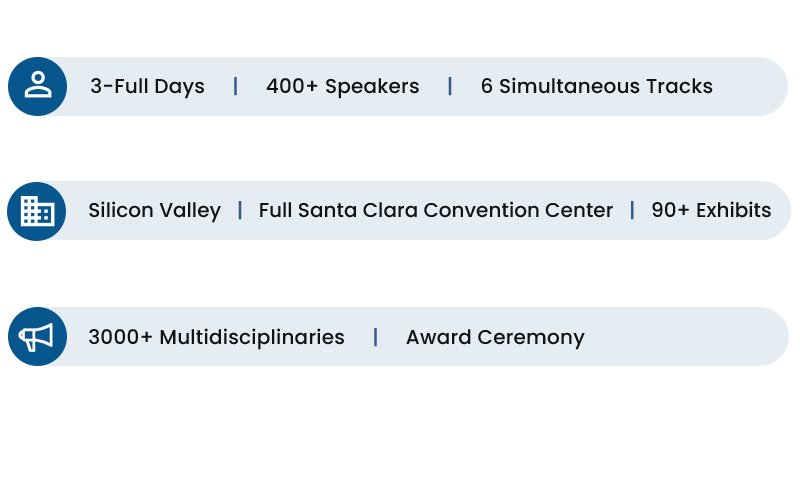
LEADING & ORIGINAL FORUM FOR PRECISION MEDICINE
SILICON VALLEY, CA
REGISTRATION
Tickets to PMWC - Est. 2009
LoadingSale ends
Loading

Purchaser/Assistant Information
Hide Fields
Not your account details? Login here.
Having trouble registering? Try our alternative checkout. Click here.
Place Order & Next Step
Amazing!
$0.00
Loading Waiver
Addon Price:
$0.00
+1 Extra Ticket:
$0.00
$0.00
Ticket Rate
$0.00
$0.00
$0.00
$0.00
Credit card entry

This is an error.
PMWC Overview
Testimonials
Overview
PMWC, the “Precision Medicine World Conference” is the largest & original annual conference dedicated to precision medicine. PMWC’s mission is to bring together recognized leaders, top global researchers and medical professionals, and innovators across healthcare and biotechnology sectors to showcase practical content that helps close the knowledge gap between different sectors, thereby catalyzing cross-functional fertilization & collaboration in a effort to accelerate the development and spread of precision medicine.
Since 2009, recognized as a vital cornerstone for all constituents of the health care and biotechnology community, PMWC provides an exceptional forum for the exchange of information about the latest advances in technology (e.g. DNA sequencing technology), in clinical implementation (e.g. cancer and beyond), research, and in all aspects related to the regulatory and reimbursement sectors.
Format
The conference format consists of five parallel talks spanning 3 full-days. Main Tracks 1 and 2 include sessions by leaders in the commercial, pharmaceutical, academic, government, regulatory, venture capital, and non-profit arenas that deliver a broad and up-to-date array of content across the various facets of precision medicine. Session discussions focus on time-relevant aspects with a selected set of key stakeholders, while commercial sessions cover the latest developments in technologies that are instrumental for the success of further adoption of precision medicine.
Additional Tracks 3-5, feature Showcases: companies and research institutions can promote their platforms, launch products, and share research developments to a targeted audience & the Most Promising Company Competition: identifies “rising stars” startup companies in the area of diagnostics, therapeutics, and health tech via a platform that includes leading investors.
For over a decade, PMWC has recognized individuals who have played a significant role in transforming health care by advancing precision medicine in the clinic with the Luminary and Pioneer Awards. The honorees’ numerous technological and scientific contributions have expedited this transformation as demonstrated by the clinical adoption of precision medicine, and the ongoing introductions of novel clinical applications. For a deeper look into the fascinating achievements of our past awardees see the awards page.








